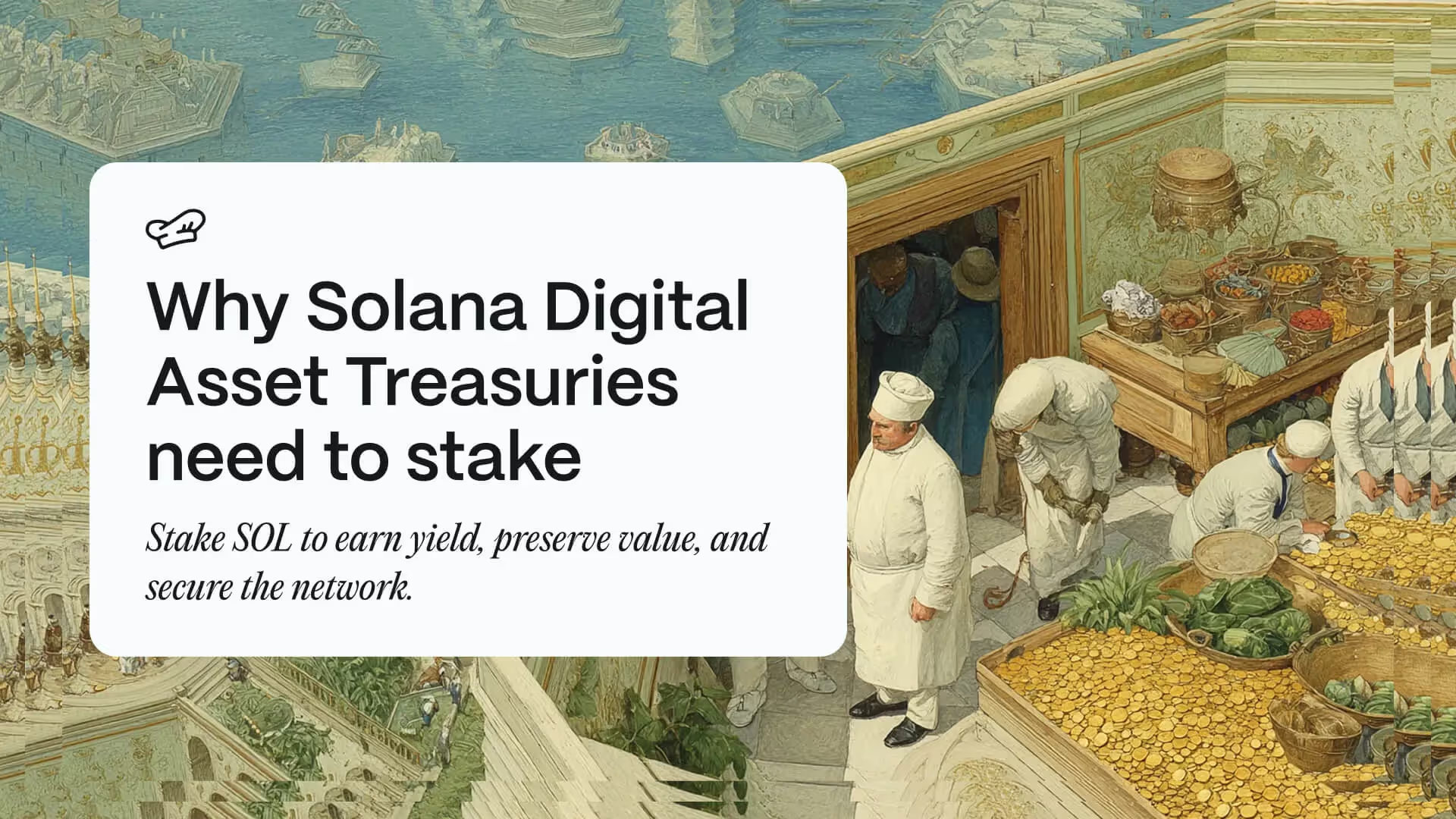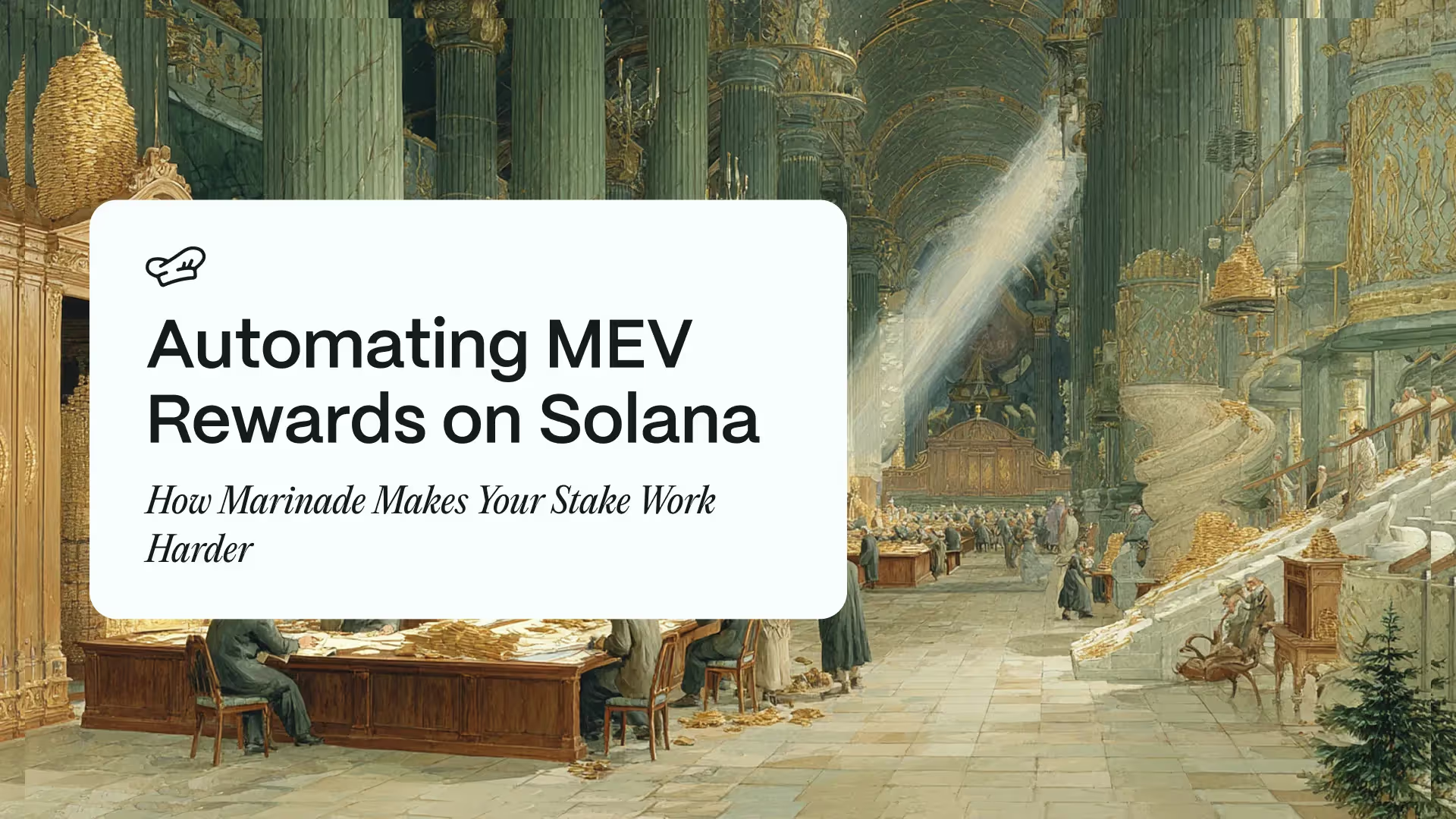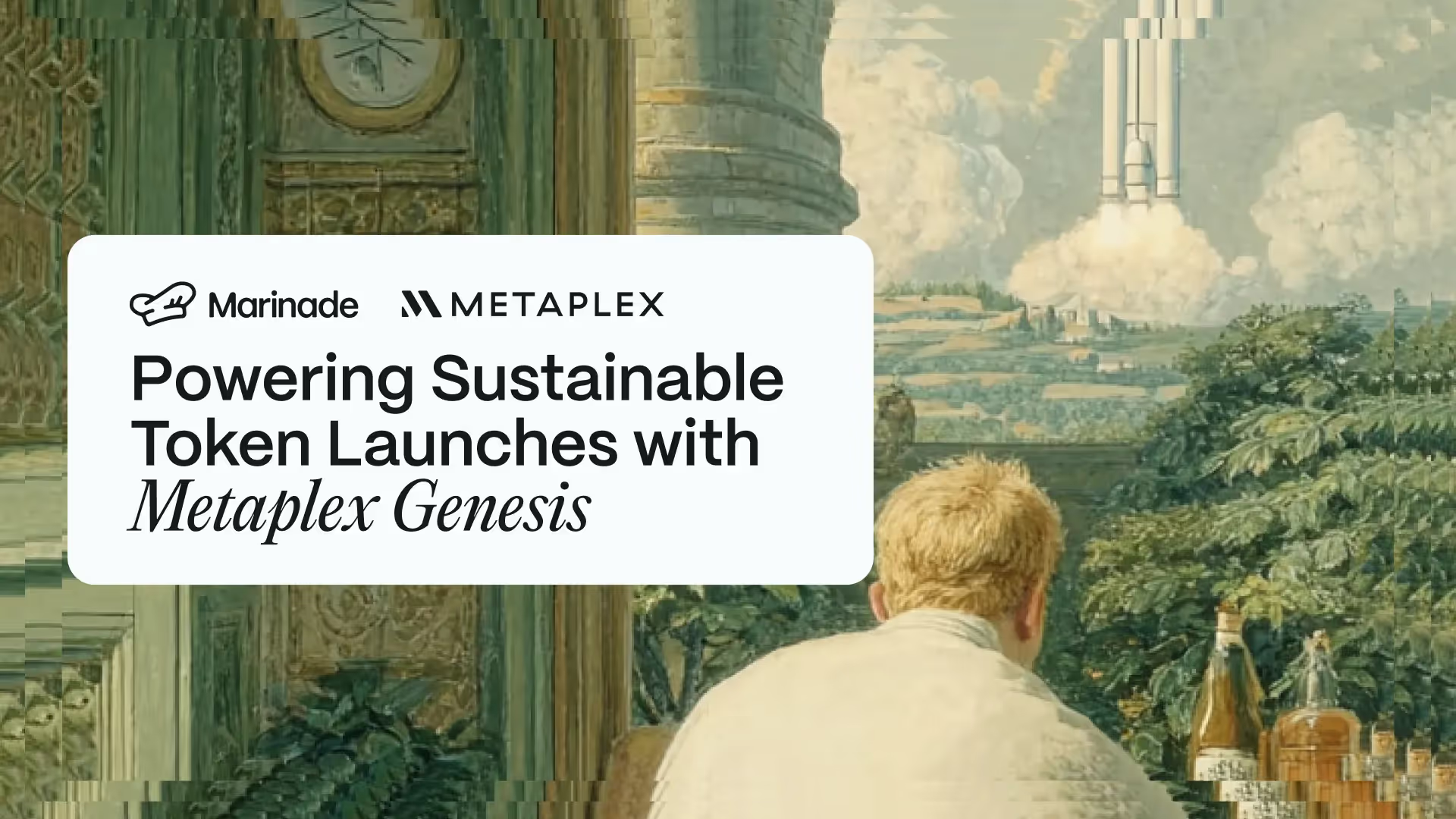Why Solana Digital Asset Treasuries (DATs) need to stake
Discover why digital asset treasuries stake SOL on Solana. Earn yield, preserve value, and secure the network with Marinade staking solutions.

Solana has become one of the strongest blockchains for institutions to allocate capital. Its low-cost, high-throughput design makes it efficient to use, while the expanding ecosystem of DeFi, stablecoins, and tokenized assets appeals not only to builders but also to treasuries managing large positions. For treasury managers, this combination means SOL is a liquid, yield-bearing asset that aligns well with long-term and short-term portfolio strategies.
That reality is giving rise to a new category of participants known as digital asset treasuries (DATs). These are companies, funds, or listed vehicles that hold significant amounts of SOL directly on their balance sheets. Depending on the structure, some DATs are prioritizing price exposure, while others are beginning to stake, and a growing number are exploring Solana governance or validator participation. The question now is how these treasuries should manage those holdings. At Marinade, we believe that the best way to capitalize on Solana is to engage in the long-term security of the asset – namely, to stake SOL and contribute to network security.
Why DATs should stake SOL: Idle assets are wasted assets
In traditional finance, excess cash is rarely left untouched. It is allocated to short-term bonds, money markets, or other safe instruments designed to generate predictable returns. Collateral is lent or rehypothecated, portfolios are optimized for both yield and risk, and idle capital is considered a missed opportunity. The same discipline should apply to digital assets, and on Solana that takes the form of network staking. This is especially relevant given that SOL is inflationary (~4–5% annually, tapering to ~1.5%). Unstaked SOL gets diluted each epoch. Therefore, staking isn’t just about yield, it’s also about preserving value.
Staking is the most direct way to ensure that SOL on a treasury’s books is productive. Instead of sitting idle, staked SOL earns consistent rewards (whether in native tokens or in other configurations - something we are building here at Marinade) that compound over time. For a treasury that measures performance in both growth and efficiency, this yield represents the digital equivalent of putting capital into short-term fixed income.
Beyond income, staking has strategic benefits. Every token staked contributes to the security and decentralization of the Solana network. A treasury that stakes is not only earning yield but also strengthening the infrastructure that underpins its own asset. This alignment is difficult to replicate in traditional markets, where investors rarely have such a direct role in securing the systems they rely on.
Risk management and liquidity
Treasuries often hesitate to stake because of concerns around liquidity or validator reliability. Both of these risks can now be managed with Solana’s infrastructure and Marinade’s suite of staking products.
- Native Staking (Marinade v2): Through Marinade’s native staking, treasuries can delegate SOL without introducing smart contract or custody risk. Funds always stay in the treasury’s control. On top of that, Protected Staking Rewards (PSR) ensures that even if a validator goes offline, rewards are covered so the treasury doesn’t miss out.
- Marinade Select: For institutions that want more control over where their stake goes, Marinade Select offers a curated set of high-quality validators. It allows treasuries to support the network’s health while aligning with known operators that meet their performance and governance standards.
- Diversified delegation: Instead of manually selecting validators, Marinade spreads stake across hundreds of operators. This reduces exposure to any single validator, supports network decentralization, and simplifies management for treasury teams.
- Liquid staking (mSOL): For treasuries that want flexibility, Marinade offers liquid staking with mSOL. It accrues rewards like native staking, but can also be traded, lent, or used in DeFi. If liquidity is needed, mSOL can be swapped back to SOL at any time, making it easier to keep capital productive without losing optionality.
- Additional yield through SAM: Marinade’s Stake Auction Marketplace (SAM) gives validators the chance to bid for delegated stake. In practice, this means validators share a portion of their fees and MEV with stakers, boosting treasury income beyond the standard staking return.
- Instant Unstake. This is available for native staking with Marinade. In many cases (whether treasuries or other Solana holdings) at least 50% of SOL supply is kept liquid in order to preserve liquidity. This means much of Solana isn’t delivering any yield. Instant Unstake directly solves this by letting treasuries stake natively and still exit instantly.
Taken together, these tools give treasuries the ability to balance yield, security, and liquidity in the same way they would with traditional balance sheet instruments. Instead of leaving SOL idle, managers can deploy it through Marinade’s infrastructure to generate returns while protecting capital and supporting the network.
Positioning for the future
As regulators formalize frameworks for digital assets, staking is increasingly being recognized as a core mechanism of blockchain networks. The SEC has already clarified that many forms of delegated and liquid staking do not fall under securities law when rewards and ownership stay with the depositor. ETF proposals now include staking as a yield component, and accounting bodies are preparing guidance that treats rewards as regular income. Treasuries finally have a framework that makes participation both viable and reportable.
That clarity arrives at the same time Solana’s growth is accelerating. More users drive more applications, which attract more developers and more capital. Large holders have the scale to push that cycle forward, but only if their capital is active. Treasuries that stake now will not only see returns on their balance sheets, they will also gain a seat at the table in one of the fastest-growing digital economies.
Idle SOL is wasted capital. Staked SOL is a long-term strategy.


